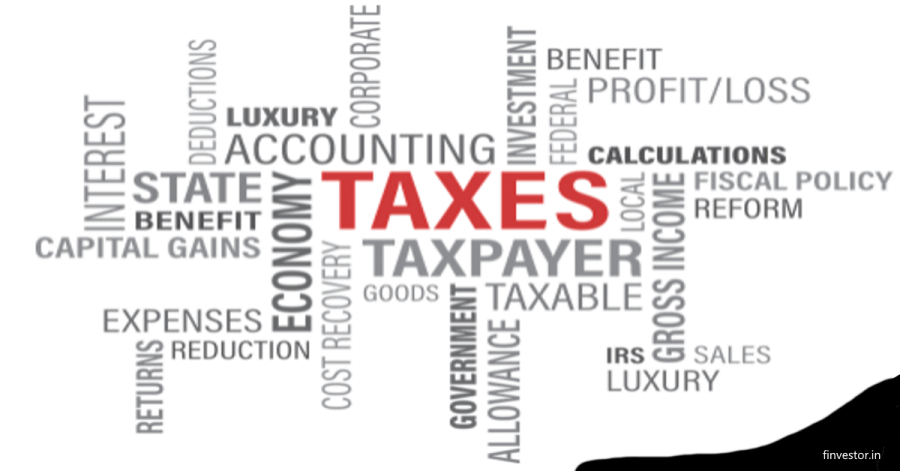To have knowledge about certain provisions of the Income Tax Act is necessary. While filing Income Tax Returns, there is a list of things to be done and as an individual gives the underlying documents to claim a particular deduction, he/she gets accustomed to it. Because of this familiarity with a few applicable sections, more attention is paid specifically to those areas when the Union Budget is out.
In this article we will consider the tax implications for those who trade in securities, threshold limit for tax audit for assessment year 2021-22, and capital gains tax when sale of a property takes place.
Income from trading in Shares, Securities and Derivatives:
In case of the persons who trade in securities, income/loss arising from such trading is considered as Business Income under Section 28.
However, it all depends on the type of the dealing that affects the computation of business income/loss.
Those who trade in Futures and Options irrespective of whether trading regularly or occasionally, are eligible to deduct expenses which are directly related to earning this income. This includes all operating expenses including depreciation (Section 36).
Losses arising from trading can be adjusted against any other income except salary income. The losses can be carried forward for 8 years if they cannot be fully set off against any other income in the current year. Such losses when carried forward can be set off only against business income and not against any other income.
Intraday transactions in shares are treated as speculative business income and fall under the category of Business Income. The expenses mentioned above are deductible from income.
Income Tax Act treats both the speculative and non-speculative business separately, so deciding the nature of the transactions is particularly important. A speculative loss can be set off against speculative income only. If not set off, the losses can be carried forward for a period of next 4 years.
If you trade in equity shares involving several transactions and volume as well, you will be called a trader but if only occasionally then an investor. While dealing as a trader, the income shall be considered under the head Business Income. Losses can be adjusted against any income except salary income.
But when you deal as an investor and sell the shares within a period of one year from the date of its acquisition, it is called as a short-term capital gain and taxed at the rate of 15% when STT is applicable. And if the shares are sold after a period of one year, the gain arising therefrom is treated as a long-term capital gain above Rs.1lakh to be taxed at 10%.
Losses need to be mentioned in your ITR invariably if you trade in any of the afore-mentioned categories.
Threshold limit for Tax Audit-Section 44AB for the assessment year 2021-22
Books of accounts are required to be maintained by all the persons carrying on business. They need to get them audited from a Chartered Accountant if total sales, turnover or gross receipt from business during the previous year exceeds Rs. 10crore.Tax audit is applicable when the total income exceeds the basic exemption limit.
To eliminate the compliance norms for small and medium enterprises, changes are made in section 44AB. The threshold limit for a person carrying on business is increased to Rs.10crore for tax audit compliance.
Further, it is to be seen that cash receipt and payment made during the year does not exceed 5% of total receipt or payment. This means 95% of the business transactions should be done through banking channels.
The audit report under section 44AB shall
Clause (a): In the case of a person who carries on business or profession and is required by or under any other law to get his accounts audited, be in Form No. 3CA.
Clause (b): In the case of a person who carries on business or profession but not being a person referred to in clause (a), be in Form 3CB.
The particulars which are required to be furnished under section 44AB shall be in Form No. 3CD.
In case the assessee is liable for tax audit, and he fails to conduct audit of books of accounts then he is liable for a penalty of 0.5% of the turnover of gross receipts or Rs. 1,50,000 whichever is lower.
Tax implications when a property is sold:
Profit or gains arising from the sale of property is called a capital gain. When a house property is sold after 24 months from the date of acquisition then profit arising therefrom is called long term capital gain. But if it is sold before two years or 24 months from the date of its purchase then it becomes a short-term capital gain. The tax liability will depend upon the type of the capital gain-Section 54.
In case of a short-term capital gain, it shall be taxed as per the income tax slab rate applicable to the assessee. But in case of a long-term capital gain, it shall be taxed @ 20 with indexation. After including health and education cess it stands at 20.8%
Short term capital gain=Sale Consideration-Cost of acquisition-Cost of improvement (if any)-Expenses incurred exclusively for the sale of the asset.
Long term capital gains are calculated in the same way as short-term capital gains, but the purchase cost of improvement is substituted by the indexed cost of acquisition and indexed cost of improvement.
Long term capital gain=Sale Consideration-Indexed cost of acquisition –Indexed cost of improvement (if any)-Expenses incurred exclusively for the sale of the Asset-Exemption u/s54, 54F if any availed.
The calculation of indexed cost can be done with the help of the following formula:
Indexed cost of acquisition=Cost of acquisition*Cost of Inflation index of the year of transfer/cost of inflation index of the year of acquisition.
Cost Inflation Index of the year has been shifted to 2001 for the benefit of investors.
Indexed cost of improvement=Cost of improvement*Cost of Inflation index of the year of transfer/Cost of inflation index of the year of improvement.
Exemption under section 54(for the sale of residential house) and 54F (for the sale of any asset other than a residential house) is allowed under the Income Tax Act from long term capital gains if the same is used to purchase or construct a house within a specified limit. The sections lay down different conditions for the same.


[…] need versus want, delve into the depreciation of high-value items like iPhones, and emphasize the importance of mindful spending during these sales. Before we login into Flipkart or Amazon, let us do a deep […]